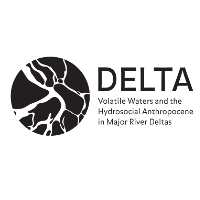On the land and in the water: connecting and disconnecting the Mackenzie Delta
This project studies practices and discourses of volatility, continuity and creativity in the multiethnic Mackenzie Delta in the Canadian Northwest Territories. It documents current Delta inhabitants’ hydrosocial relations and elucidates how negotiating volatile waters in the Circumpolar North is situated within climatic, economic and wellbeing dynamics. Investigating the meanings and implications of hydrosocial dynamics including flooding, freezing and thawing, drinking water supply, sedimentation and water pollution, the project will add critical insights on ongoing challenges and changes beyond the common adaptation and resilience framework. Research focuses on traditional land use alongside newer livelihood strategies, for instance related to gas extraction in the Delta and plans to establish pipelines across the area which continue to trouble and divide Delta inhabitants, as they promise economic opportunities but also embody pollution risks.
Two indigenous groups, the Inuvialuit and the Gwich’in, inhabit the delta, especially since the early twentieth century fur trade era. In the pursuit of furry animals – beaver, muskrat, wolverine, lynx, etc – and in order to interact with the trading posts in and around the Delta, these people moved there from the adjacent areas along the coast and inland. There is a history of friendly exchange as much as of conflict between the two groups. Towards the end of the century, both groups have successfully institutionalised their land claims through agreements with the government of Canada, and today a neat line dividing the respective Traditional Settlement Areas of the two groups runs straight through the Delta.
Members of both groups emphasise the importance of the land, and of living on the land, for forming and performing their identities as indigenous people, and for safeguarding their physical and spiritual wellbeing. In the Mackenzie Delta, being on the land and living off the land of course implies water as much as land in the more narrow sense. However, previous studies of these groups have tended to either take ‘land’ literally and focused on people’s terrestrial activities and relations, like hunting or berry-picking, or studied life directly in relation to water, i.e. the Beaufort Sea, such as whaling and the role of sea ice. The Delta, with its in-between environments of land-becoming-water and water-becoming-land, has often been neglected in such research, in spite of the people’s close relations to, extensive knowledge and wide use of these environments for transport (boats in the summer, ice bridges in the winter) and livelihoods, especially fishing and trapping.
The project will therefore trace how Gwich’in, Inuvialuit and other Delta inhabitants negotiate its volatilities – economic, climatic, social and hydrological – and how they creatively employ their various assets, from traditional knowledge to political clout and novel economic opportunities, to make ends meet and live decent lives in the Mackenzie Delta. It will pay specific attention to how these negotiations and creativities are related to the specific affordances and challenges of the Delta, and trace in what ways hydrosocial transformations connect and disconnect people and places in the Delta and beyond.
This sub-project is run by Franz Krause.
